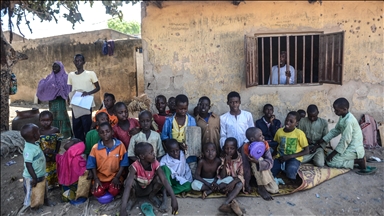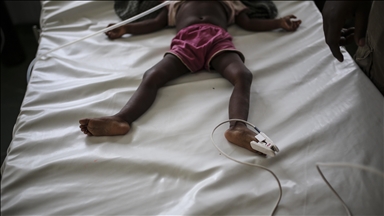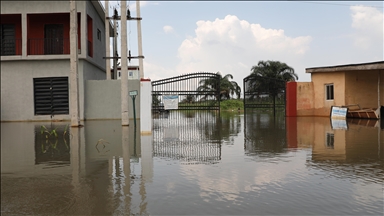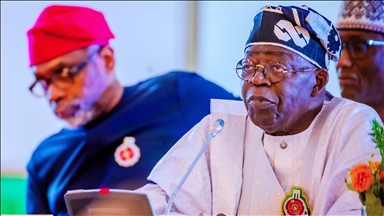Is Nigeria's Boko Haram a 'faceless' group?
"Who do they have in detention? Do they have ghosts of Boko Haram there?"
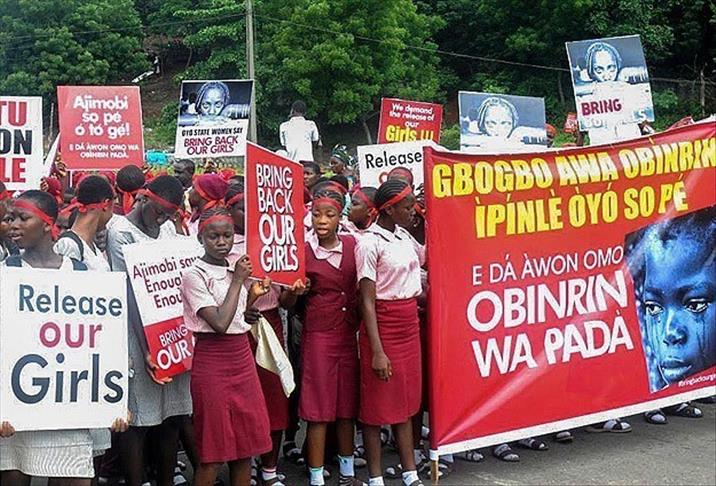
By Rafiu Ajakaye
LAGOS
When President Goodluck Jonathan was recently asked if his administration was talking with Boko Haram militants regarding the abduction of scores of schoolgirls from Nigeria's northeastern Borno State, his answer was – for many – striking.
"The government could not have been negotiating with faceless people," he responded.
But some analysts believe such a claim exposes, in a way, the government's "insincerity."
"How can they say a group is 'faceless' when they already set up two committees to dialogue with it?" Shehu Sani, a leading civil rights campaigner, told Anadolu Agency.
A presidential committee was formed last year to hold dialogue with Boko Haram and recommend ways to end its reign of terror, which began after the 2009 murder of the group's ideological leader and founder Mohamed Yusuf while in government custody.
The committee, which submitted its report last November, was chaired by Nigerian Special Duties Minister Kabiru Tanimu Turaki.
In July, Turaki told reporters in Abuja that government representatives had spoken with "somebody who is second-in-command as far as Boko Haram is concerned."
He said the person in question "has been discussing with us with the full knowledge and authority of [Boko Haram leader] Imam Abubakar Shekau."
Turaki also ruled out the possibility that his committee might have been dealing with the wrong people.
"We have done checks on him, just as they have done checks on us, and we have realized that yes, we are dealing with the right people and with the proper leadership of the organization," he told the media at the time.
AA's efforts to obtain comment from Turaki regarding the latest developments were unsuccessful.
An earlier presidential committee on the security challenges in the northeast was inaugurated in August 2011.
The committee, under after its chairman Ambassador Usman Galtimari, submitted its report in September 2011.
One of the recommendations was that the government should engage "moderate elements" within Boko Haram in dialogue to achieve peace.
That committee had traced BH emergence to the funding of private militias by politicians to win election beginning in 2003. It also traced the group's "western education is haram" ideology to a London-based scholar who the committee said was popular for his anti-western education rhetoric.
Ghosts in custody
Sani, who once brokered a dialogue between the government and Boko Haram, does not take the "faceless" Boko Haram claim very seriously.
"This is the same government that said it had made repeated arrests of their [Boko Haram] members and [that] they have them in custody," he told AA.
"Who do they have in detention? Do they have ghosts of Boko Haram there?" the activist quipped.
Sani once brokered a dialogue between the government and figures from Boko Haram.
The talks failed, however, after the group's emissaries were arrested.
Sani, however, still remains willing to initiate dialogue between the government and the militant group.
"I would be able to do that, but I would ask for the involvements of some people who are equally very important in the process," he told AA.
"I would want the involvement of some religious clerics in the north who will help in the process. I cannot do it alone," Sani said. "But if they ask for my intervention, I will certainly do that."
Diego Okenyodo, another public affairs analyst, believes the government's "faceless" argument is "contradictory" and "falls flat on its face."
"That is because it [the government] already had a committee that claimed to have had results in negotiation with Boko Haram," he told AA.
Okenyodo, who is also a social researcher, said the government committee had reported making progress in the talks.
"So to claim 'facelessness' all of a sudden will be a contradiction," he added.
"Also, when you say 'faceless,' you have members ofBoko Haram in the custody of secret police and various military formations, which have made them put faces to it," said the expert.
"In fact, they once claimed to have killed Abubakar Shekau... So they cannot make claim to Boko Harambeing a faceless group," he insisted.
Uncommitted
Yinusa Yau, another civil rights campaigner and researcher on Boko Haram, believes that neither the sect nor the government is committed to peace.
"I believe there are two levels to this issue," he told AA in an interview.
"The first level is if Boko Haram is genuinely interested in negotiation, then it should have clearly indicated the channels of communication with the government," he said.
"If they don't do that, then the group remains faceless," he added.
Yau said that if the government was committed to negotiations, then it also must set up its own mechanisms for dialogue and try to get across to the group.
He urged the government to release the reports prepared by the Turaki committee and the much earlier Galdimari committee.
"To test the government's sincerity about what it is saying, then let it first of all publish the reports of such committees," he said.
"The public needs to know what are the things that the committees have discovered or uncovered or recommended. On that basis, one can engage the government," Yau added.
"But as it is now, it is mere speculation what Turaki and others have said, because the reports haven't been made public," the expert asserted.
"As it is, it appears the government doesn't even understand what it is fighting," he added.
Yau went on: "You need to understand what you are fighting for you to be able to develop an effective strategy to contend with it."
www.aa.com.tr/en
Anadolu Agency website contains only a portion of the news stories offered to subscribers in the AA News Broadcasting System (HAS), and in summarized form. Please contact us for subscription options.


